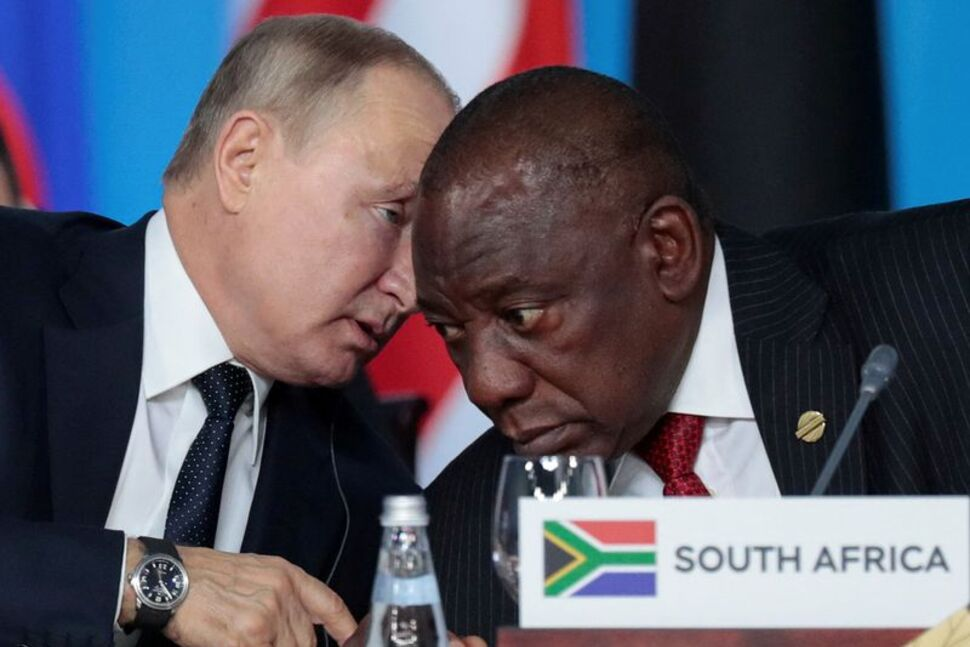Putin’s Visit to South Africa Raises Concerns Over His ICC Arrest
The BRICS head-of-state members posing for a picture at the summit in 2018. Photo: Mike Hutchings/AFP.
President Vladimir Putin plans to attend the BRICS annual summit, taking place on June 2nd in Cape Town, South Africa, despite an arrest warrant issued by the International Criminal Court (ICC) last month. South Africa will welcome the other four emerging economies of the world to the summit - Brazil, Russia, India, and China. President Cyril Ramaphosa stated in order to host the summit with Putin present.
The BRIC members build economic cooperation and security between their governments. This year’s summit will explore opportunities for freeing their economies from reliance on trading with the U.S. dollar. By doing so, the nations will promote the interests of their economies on the world stage.
Foreign powers and the ICC are putting pressure on South Africa to arrest Putin upon his arrival, putting South African economic interests at risk, and their foreign policy relations with Russia and China into question.
According to the ICC, the Kremlin’s “unlawful deportation of population (children) and that of unlawful transfer of population (children) from occupied areas of Ukraine to the Russian Federation” was the reason for issuing the arrest warrant for Putin. Ramaphosa said that South Africa will consider the arrest warrant, although they have yet to condemn the war in Ukraine. Brazil is the only member of the BRICS that voted against the invasion of Ukraine at the United Nations.
Putin is not the first head-of-state to visit South Africa, while having an arrest warrant from the ICC. President Omar al-Bashir of Sudan attended the Africa Union summit in South Africa in 2015, while being charged with committing genocide and crimes against humanity by the ICC. South Africa chose not to arrest al-Bashir, angering the ICC and posing questions, whether South Africa was to continue being a member state.
President Putin whispers in President Ramaphosa’s ear at the Russia-Africa Summit in 2019. Photo: Sergei Chirikov/REUTERS.
With Putin now visiting under similar circumstances as al-Bashir, Ramaphosa responded to the questions surrounding the possibility of an arrest with, “We would like this matter of unfair treatment to be properly discussed, but in the meantime, the governing party has decided once again that there should be a pull-out,” referring to the once again possibility of South Africa resigning from the ICC.
South Africa, among other African nations, argued several times that the ICC disproportionately arrests and targets African leaders, while Afghanistan, Israel, Iraq, and Yemen who have committed human rights abuses by the definition of the ICC, have not been charged.
Dr Hannah Woolaver, an associate professor of law at the University of Cape Town, wrote for the European Journal of International Law that “it should also be recognised that by issuing an arrest warrant against a sitting Head of State of a non-party State in the absence of a Security Council referral, the ICC is putting States such as South Africa in a difficult position – both legally and politically.” Ramaphosa and his party have yet to come out with a final decision on the arrest warrant.
Mikatekiso Kubayi, a researcher at the Institute for Global Dialogue in Pretoria, South Africa stated that, “The collective strength of the BRICS economy and the technological capability, market size, and other qualities that make BRICS a solid development partner for Africa is what South Africa will look to harness with the BRICS partners.” BRICS poses as a means for South Africa’s access to the world economy, and possibly for Africa as a whole. However, the state’s lucid obligation to the Rome Statute and the ICC puts them in an internationally precarious position.


